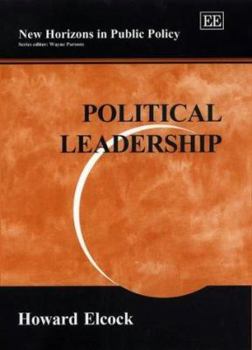Political Leadership
Howard Elcock develops an account of the various governing, governance and allegiance roles political leaders play and discusses the devices by which their ability to lead effectively can be improved. He examines the processes of uncertainty reduction, increasing creativity and facilitation of collective learning. He concludes that the preoccupation with 'new public management' over the last twenty years has caused fundamental debates about political and social values to be neglected. Only a new focus on leaders and leadership, he argues, can correct this problem and provide guidance for politicians and officials in a world of increasingly rapid and unpredictable change.
As an eminently readable book, this will be welcomed by scholars of political science and history, public administration and management as well as anyone involved, or with an interest, in politics and government.





